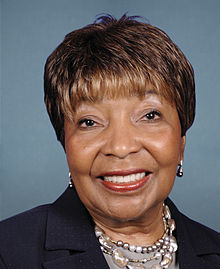
By Eddie Bernice Johnson
After the results of Donald Trump’s victory, people in our community and across the nation alike are nervous about the future. Some others may be sad, angry, or overjoyed. These responses are natural. However, the most useful exercise and biggest challenge is determining what comes next. No matter the outcome of any election, we are lucky to live in a democracy, where transitions of power are peaceful.
Now that Republicans control the White House and both chambers of Congress, there will be fierce political battles, whose outcomes members of my party may fear. Some of the most passionate and controversial endeavors of the Obama Presidency could be overturned or vastly changed. For those of us who supported the Affordable Care Act, we are sad to see that its original vision will at minimum be drastically altered. Yet, while we might not agree with certain policy positions that will come from the Trump Administration and the Republicans in majority power, we know that our rights as citizens in a democracy are still as strong as ever.
The Election of 2016 does not have to be considered an irreversible travesty. It was divisive and ugly but still it was passionate. And it is after controversial times like these, like the Vietnam War, that our nation moves back into itself, longing for healing, but knowing more about the emotional undercurrents that exist within our populous. No matter your opinion, your affiliation, your joy or your pain, I encourage you to become involved politically—on any level. Organize in the community, familiarize yourself with your local politicians, make calls, show up at offices, or even come to Washington to let Congress know what you stand for. Political expression is not limited to just the first Tuesday of November, once every 1,461 days. Nor is it limited to your social media feed. It is hard work and requires patient participation. In the words of President Obama, “Democracy is not a spectator sport.”
One scary thing about this election is the propensity of misinformation on the Internet. But again, navigating what news is real and what news is fake requires participation and study. Like political organizing, it is a slow and patient process. But it is an opportunity not only to guard ourselves from misinformation, but to arm ourselves with knowledge. We are afforded the great privilege of living in a democracy, where we do not have to fear for our lives as political parties transition between power. However, the price we pay for that luxury is the necessity to participate.
For so many of us, was the election a loss? Absolutely. Nevertheless, moving forward, it is more important that we do not lose the lesson, as well. While there is much uncertainty for the future, the one thing we know to be true in the present is that indifference and apathy are not an option. Above all we must participate. We must educate ourselves and begin productive, difficult conversations that elevate our communities. Let us show our gratitude for the democracy in which we live.




